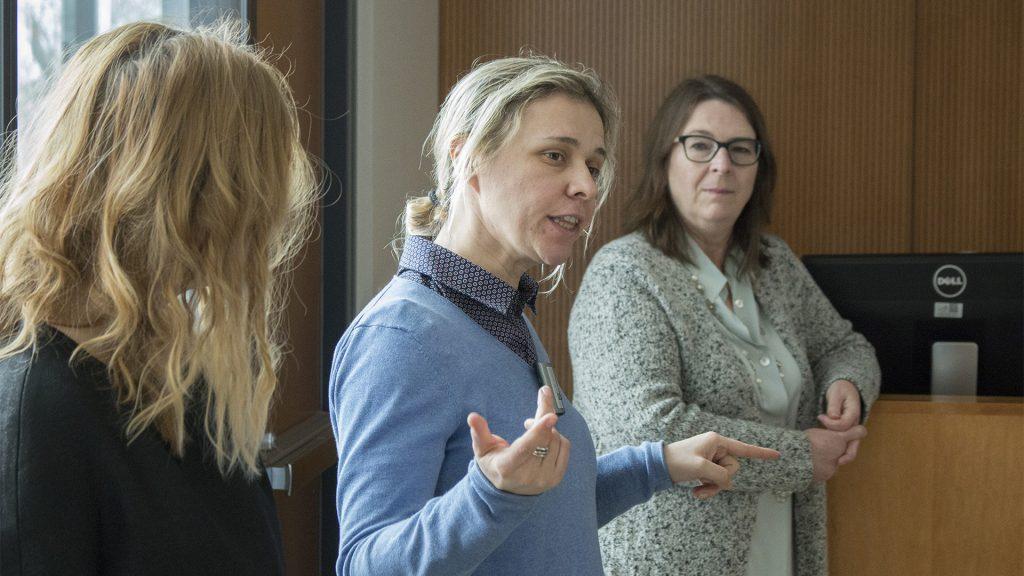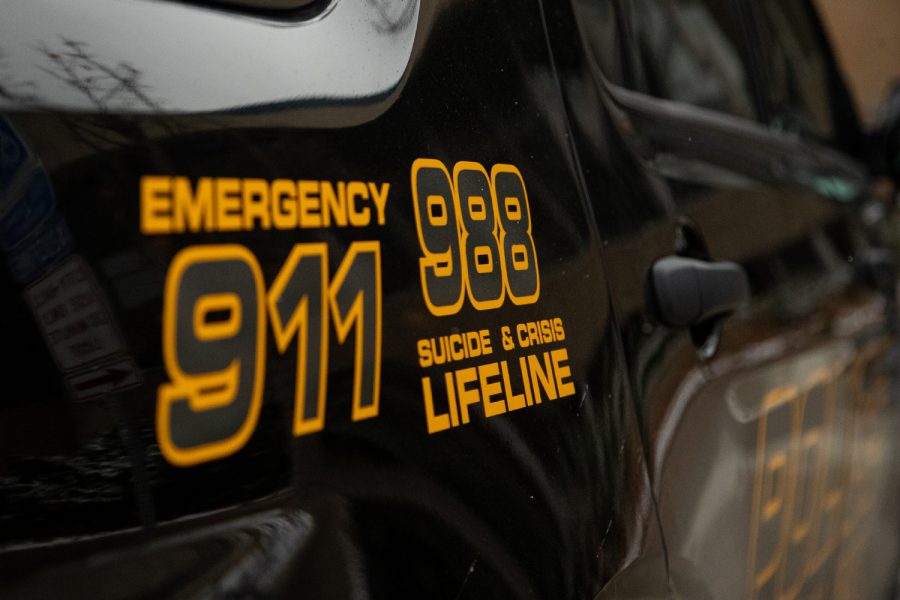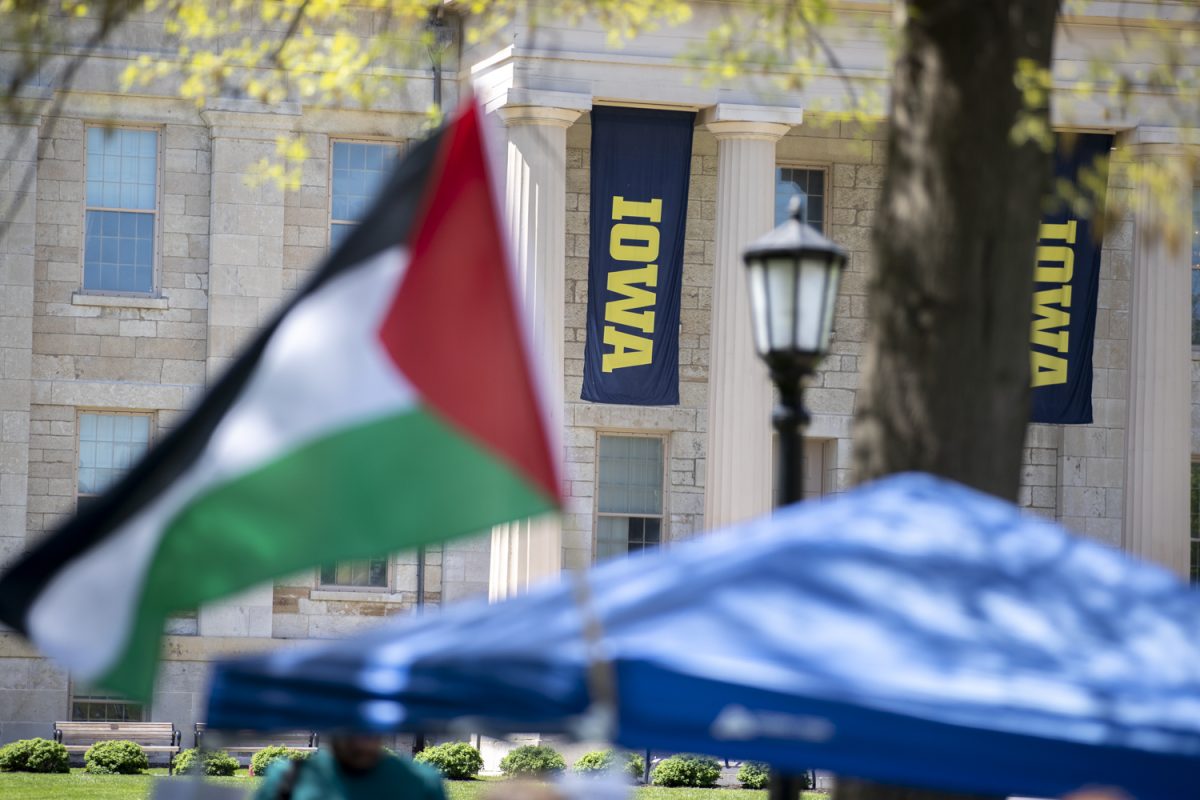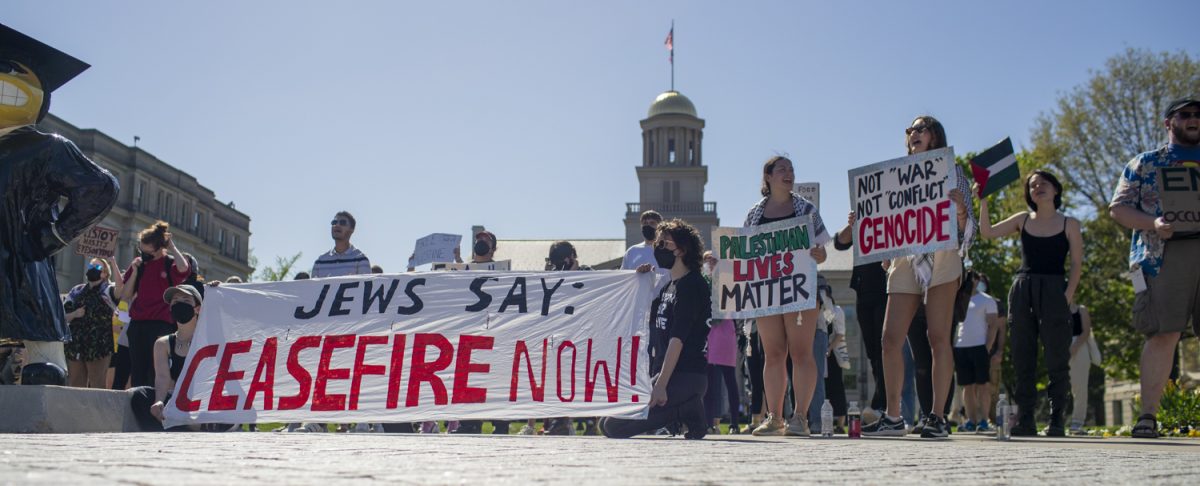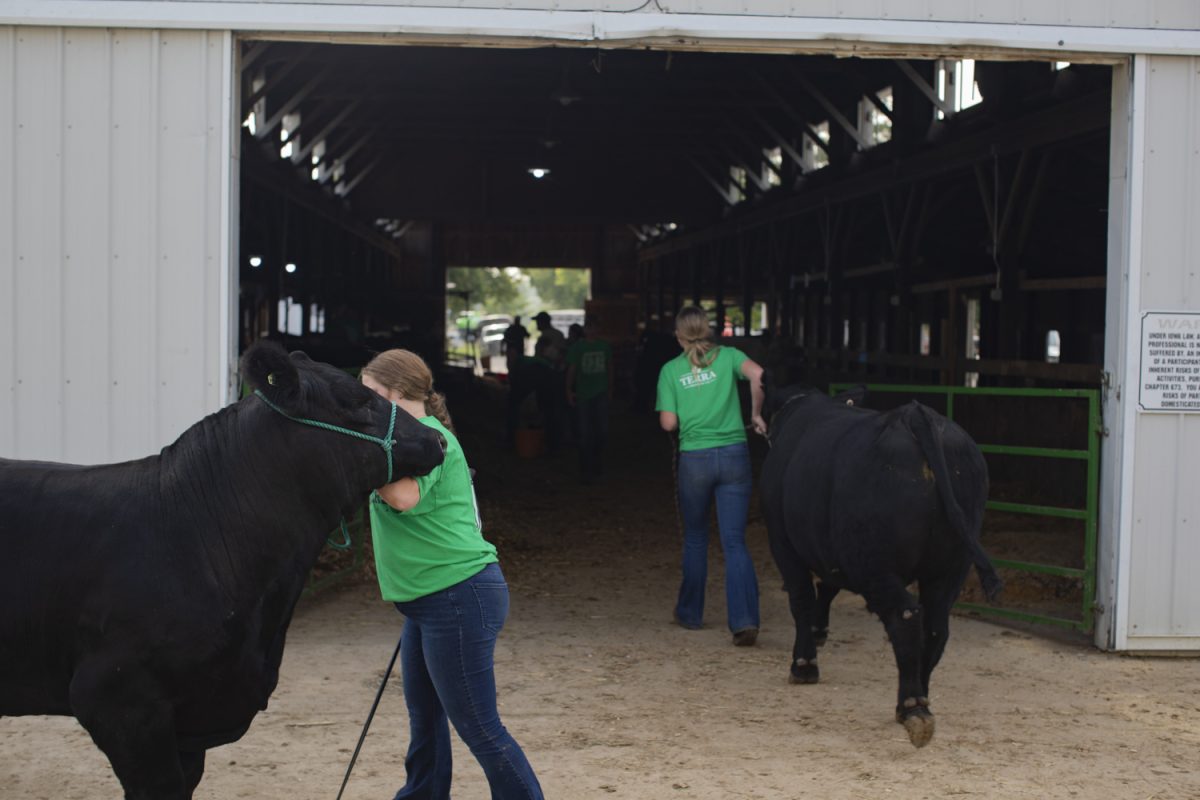Bosnian photographer Majda Turkic discussed and presented her new gallery on the effects of cyberbullying on Wednesday at the College of Public Health Building.
The gallery, titled Cyberbullying: Telling the Public Health Story Through Photographs, was created in 2017. It combines photographs of real Bosnian students, ages 11 to 19, with Photoshop to create chilling portraits that detail how online abuse can negatively affect children and teenagers.
Many of Turkic’s pictures capture moments of children in moments of fear, helplessness, or even suicidal contemplation while their peers jeer or capture photographs of their fellow children’s struggle for social media attention.
Despite the hardships the images portray, Turkic said, she and her student models had fun creating them. She also expressed why she felt it was important to use teenagers and children in her art.
“This generation of young people identify virtual reality as real,” she said. “Therefore, visual forms of letters, words and comments are considered more important than the same things in the real world.” She stressed that, often, youth feel like it’s a necessity to know what’s being said about them online.
The students who assisted Turkic in modeling for her photographs were chosen based on an essay-writing contest that was distributed throughout participating schools in Bosnia. The participants, Turkic told the audience, were selected based on how much effort they put into answering the essay questions.
RELATED: Monica Lewinsky calls for compassion as remedy to cyberbullying
Cyberbullying was widely regarded as an unimportant issue in Bosnia until recently, said Nina Jovanovic, who assisted Turkic with the project. Jovanovic reported that some of the teachers of the children who modeled for Turkic’s anti-bullying campaign were unaware of what cyberbullying even was until they were informed by their students. She and Turkic visited with numerous school principals across the country to discuss ways of combating it.
“If we want to influence [bullies] behavior, we have to do it more as a social structure than an educational one,” said Corinne Peek-Asa, the associate dean for research at the Public Health College, who helped organize the event.
“It’s hard to recognize the victim because the victim hides or tries to be invisible,” Turkic said. “Many schools in many countries don’t have the mechanisms to protect this behavior and protect victims.”
The discussion with the audience included thoughts on the nature of bullying itself and how some school programs don’t put enough emphasis on squashing such behavior.
“There are some kids who are just mean, and they’re not in a system that discourages them strongly enough from getting power by being mean,” Peek-Asa told the audience.
The audience discussion also included a conversation about how to adapt strategies like Turkic’s so that younger students could understand them. Additionally, the audience talked about the possibility of using influential anti-bullying advocates like Melania Trump to spread a message against online abuse on a global scale.
Peek-Asa met Jovanovic more than a decade ago through an international trauma-training program, and the two brainstormed ideas that merged art and public health, leading to Turkic’s visit to the UI.
Turkic has had her artwork exhibited across the globe, including Vienna, Berlin, and Israel, and her cyberbullying gallery has been displayed across Bosnia.




